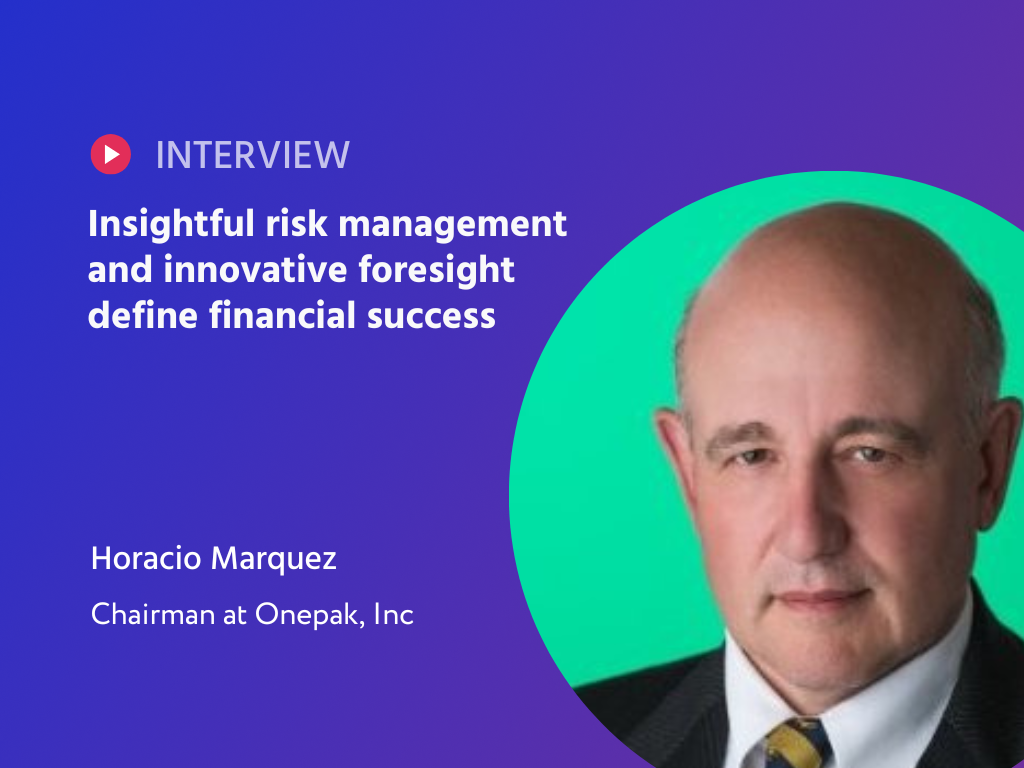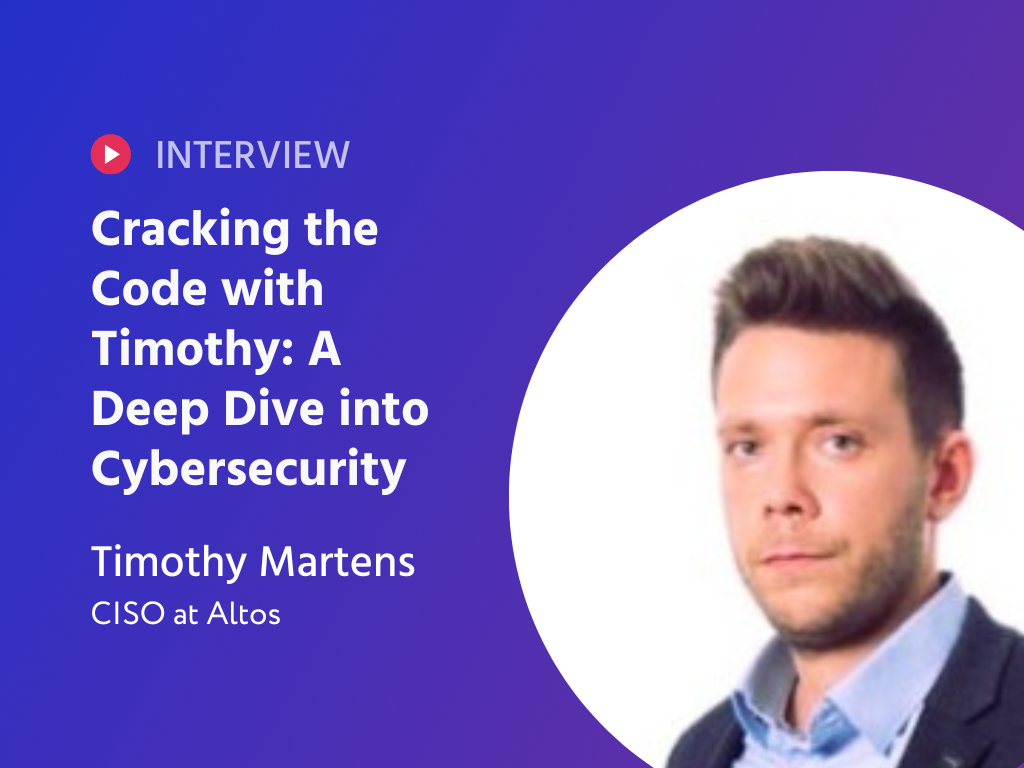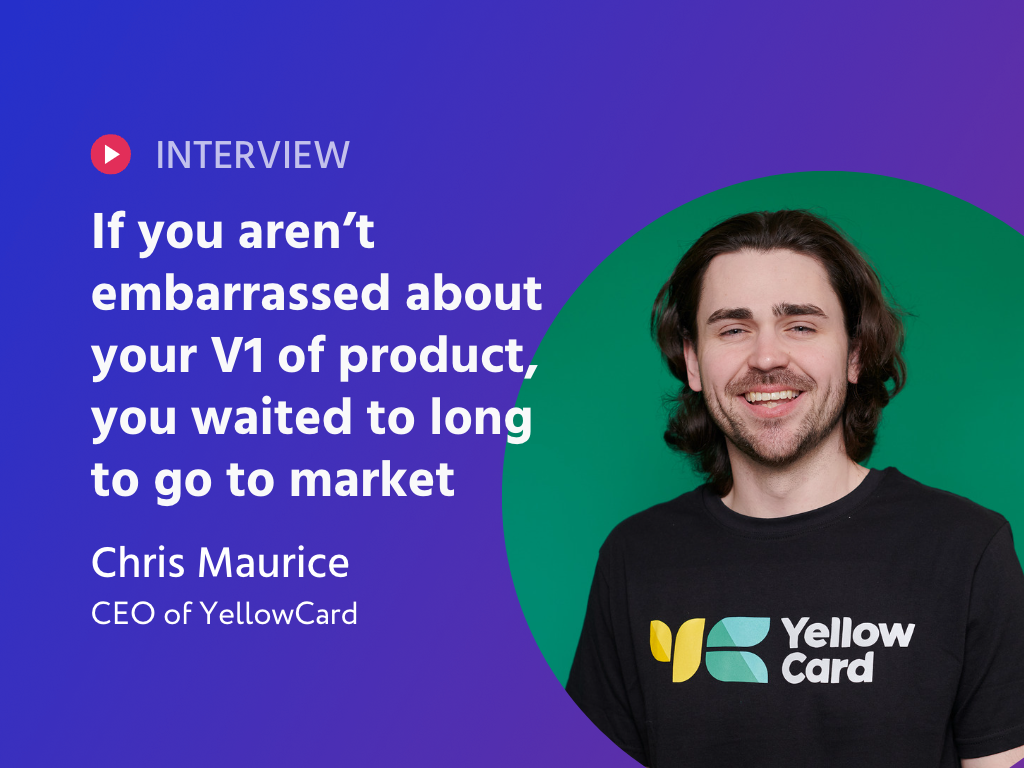Yokahu Co-Founder Farid Tejani is a second-generation British immigrant who believes that arriving in a new country has "something quite powerful" about it, forcing you to adapt and learn new skills, which has helped Farid and other second-generation immigrants succeed.
After years of working in software technology and finance for major banks, he began dabbling in various fields in hopes of sparking an interest that would lead him to his true calling: using low-carbon economic systems and climates to fight climate change. His mission is to determine whether monetary incentives can aid in the mitigation of climate change.
Yokahu, founded by Farid and Tim McCosh in 2019, digitizes the value chain for any weather/disaster risk worldwide and creates smart contract solutions to protect communities and businesses.
Farid discusses the importance of following your passion, how they are using Fintech innovation and AI to help those most affected by climate disaster, how a B2B2C company works and what to focus on, and when to double down or throw in the towel.
Self-learner, Self-motivator, Self-doer
Farid chose technology because he is fascinated by how complex systems work; observing their interactions, the complexity and behavior of lines of code, components, and services. All of these things lead to what Farid calls "interesting outcomes."
"My background is in testing, rather than software development. Once I had accomplished everything that I could in that respect, I was overseeing projects and running programmes at the office. As a result, I knew I had to find ways to combine my passions.”
I wanted to know my heart was truly in my work
From coming from the green finance and technology sphere, Farid saw how much power money has to change the world, so that was the motivator to start building things around climate change, climate risk, and climate problems.
Similar to a smart contract
Tim McCosh, a former broker who "previously established insurance policies and authored risk brokering risk for significant concerns in the climate sector, came up with the concept that would later grow into Yokahu.
Farid compares the Yokahu product to a smart contract because you are insuring an event rather than assets such as a house or a building. Before you and the insurer can confirm the news, you must first agree on the amount of money that the client, buyer, or policy will receive.
"If an event occurs, such as a flood or a hurricane, you will be paid X amount of euros, depending on what was agreed upon at the onset. This is dependent on affordability and other factors, but the advantage is that everything happens instantly because it is a smart contract."
We monitor the data and payout instantly, within minutes or even seconds
Brainstorming in the midst of crisis
COVID was not going to stop the Yokahu concept, brainstorming sessions were taking place right at the start of the international meltdown and immediately began working on developing this idea for parametrics all over the world. They refined and narrowed down the solution as they found their niche, focusing solely on climate risk problems.
While climate risk and climate change affect everyone, they do not affect everyone equally
"Our mission is focused on providing insurance cover for individuals who are more affected - people who are more affected are people in underdeveloped nations, people who have economies that are more dependent on tourism, more dependent on natural resources.”
Aid is not solving the problem. As the frequency of these problems increases, it can’t cover all of these expenses
“Government funding can take up to two years to arrive. So, what we basically do at Yokahu is provide individuals, companies, governments, and banks with the capacity to insure themselves against all types of climate risks, including climate catastrophe risks, that may directly affect them.”
We are on a mission to solve all climate disaster problems for all markets
“This business has been an evolution; as we understand the problem better, understand the way in which we can solve the problem better, we understand the problems that we cannot solve.”
As a small company you're constrained in resources, so you have to double down and narrow your focus
A B2B2C company? How does that work?
So, while climate risk insurance can assist safeguard individuals, small enterprises, and even entire countries, who is Yokahu's target audience? Individuals or businesses?
"We are a business-to-business (B2B), which means we sell our insurance and technology to other businesses, who then utilize our technology to benefit their consumers directly. So really we're a business-to-business-to-customer. This means we can scale more quickly."
"But we also have the ability to touch and understand the end consumer and their demands. But, actually, it's our customers’' customers. In that case, our target audience is rather broad because we focus on a variety of countries."
Farid goes on to explain how, in some countries, they focus on insurance brokers who already have good relationships with consumers, and businesses that are purchasing insurance products, whereas, in other industries or markets, they speak directly to financial institutions such as a mortgage lender.
According to the latest UN data, 1.6 billion people are considered climate vulnerable, which means they are economically exposed to a climate risk event. Farid describes how natural weather events such as storms, hail, fire, drought, and flooding are accelerating and growing more severe. As a result, there are around 1.6 million billion potential clients Yokahu can sweep up in the coming years.
Doubting yourself: A dream killer for any entrepreneur
With early-stage ventures, everything is constantly uncertain. You're dealing with constructs and something that doesn't yet exist. It exists solely in your mind. So the challenge is to convert that from your head into the real world, where it will make a difference.
The challenge is to convert that idea from your head and into the real world, where it can make a difference
"Product knowledge and understanding evolve quickly, and timing is a key role in whether or not a business succeeds.nterv"
"You may have the perfect product, the right solution, the right problem to tackle, and the appropriate technology to tackle the problem, but if your timing is off, it will tilt the scales against you."
You may have the perfect product, but if your timing is off, it will tilt the scales against you
“With early-stage ventures, you're often too early. The main challenge is almost always timing.”
Know when to throw in the towel
Another significant challenge in any startup venture is calculating when to fail. Farid describes how difficult this challenge is and how your number one job as a founder is to be extremely creative in how you solve problems.
“We're working within a period of startups, in which you have a lot of constraints and relatively few resources, so you have to be creative in how you solve a problem. You may come up with a completely different way to solve the problem, and it might be a better solution."
Your creativity in how you solve a problem is like an artistic experience
Farid explains that, instead of throwing in the towel, when the going gets tough, you have to suspend your rational mind, and instead use your creative side. It all comes down to that very well-known phrase ‘as a founder you wear many hats’.
“You need to develop some kind of discipline around your hypothesis to establish whether or not the creative idea is a good idea or a bad idea.”
“I think one of the challenges I've had to learn, but I think a very important skill to learn as an entrepreneur, is being able to switch from being highly creative to being very disciplined and scientific about what the data is telling you when you run your experiment in the market.”
When you are very impassioned, and it's your own idea, you already have your own cognitive bias
You have to have the will to adjust it, the lean startup method way - test and learn
Is the market ready for this?
"If you're in the early stages of that and you're not sure whether the market will even understand or accept your product, you can't really test and learn in a micro fashion; you have to do it in a macro fashion, which means being very harsh on yourself."
“If something is not working, stop and completely change the approach."
They call it pivot, but it's not a pivot, it's a reboot
You're never sure which direction you're gonna go. Double down? Or abandon it?
“The biggest challenge is always going to be resilience. You’ve got that and you’re halfway there!”
Farid explains that the end result of an entrepreneurial venture is rarely the product or the solution that was originally envisioned.
“The extent to which you can make a difference or your hypothesis is good depends on your ability to reboot.”




